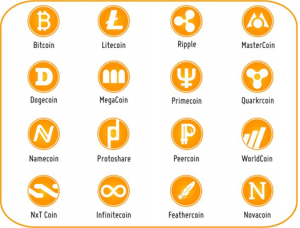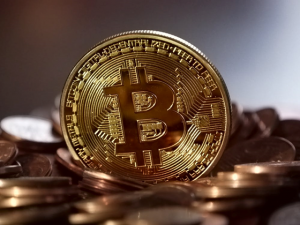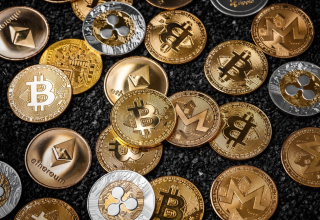After the explosion of Bitcoin onto the international cryptocurrency trading scene, a number of other coins have popped up to compete with the original coin that hit almost $20,000 in value in late 2017. Seemingly overnight, cryptocurrency trading has exploded, and more and more investors are cashing in on the massive profits that can be made.
Recorded for ItsMyOwnWay by King Passive
If you’re interested in starting a career in cryptocurrency trading, don’t go into your first trade without reading our currency trading basics to improve your portfolio and see more profits when you begin cryptocurrency trading!
Branch out from Bitcoin:
Right now, the entire world is obsessed with Bitcoin. So much so, that you may have trouble finding information on other coins besides the mainstay. What you might not already know is that there are a large number of other cryptocurrencies that are gaining popularity because they work to solve one of the weaknesses of the Bitcoin setup. For example, cryptocurrency Monero works to make cryptocurrency trading even more private by employing a very advanced encryption code that makes trades nearly impossible to track. Other cryptocurrency options like Ripple choose to go the opposite direction and cooperate with banking institutions to provide international currency exchanges that cost a fraction of the fees that traditional money transfer systems do.
The real joy and profits in trading cryptocurrencies come from figuring out which coins will be the next big thing, not riding on waves that are already peaking. There are plenty of non-biased forums, online news outlets, and even mailing letters that can help you keep track of what’s going on in the world of cryptocurrency trading, and can help you catch the next wave before it lands!
Do your research:
Cryptocurrency trading is one of the newest trends in investment; Bitcoin was invented in 2010, and most other coins are even older. There is definitely a learning curve that comes along with cryptocurrency trading, especially if you are a beginner. What makes getting started even more difficult is the fact that mainstream media sources are largely ignoring the world of cryptocurrency trading, making it even more difficult to find reliable information. Doing research on sites like Trading101.com can help you reduce the time it takes to start trading effectively-meaning more profits in your wallet at the end of the day.
Invest carefully:
Cryptocurrency trading is exactly like any other form of trading; once you put money into your digital wallet, you need to consider the possibility that you can potentially lose everything. Some experts even say that cryptocurrency is even more of a gamble than Forex trading because the market is so new and volatile. Because of this, it is crucial that you only invest money that you can afford to lose. Spending big bucks investing in a cryptocurrency, only to see it go down in value will make you feel terrible; don’t put your financial future in jeopardy for a gamble.
Watch out for changing values
One of the biggest draws of cryptocurrency trading is volatility. Unlike Forex trading, cryptocurrencies are not backed by banks, corporations, or any other type of insurance; the only thing that dictates the market is supply and demand. This is not necessarily a bad thing. In fact, this quality is one of the factors that make cryptocurrency trading so profitable when you make the right choices concerning investments. However, this also means that it’s nearly impossible to predict when values will rise and fall. But when you arm yourself with good knowledge, bitcoin price prediction won’t seem like such an impossible task.
Smart investors look at the way the currency is trending (up or down) in value and wait until the price has fallen low enough before investing. Investors that lose money just buy their cryptocurrency of choice at whatever price it is.
Be smart with your money:
Your digital wallet is analogous to a physical wallet; if you don’t back up your money, it can be stolen along with your computer. This might not be a major concern if you only have a few hundred dollars in your wallet, but if you become a major investor, you will want to move to a more secure wallet like Trezor to further protect yourself against hackers and thieves. Think about it this way: if you wouldn’t let anyone touch or hold your physical wallet, you should keep your digital wallet in a safe space as well.
Hold onto your coins:
Some investors are naturally attuned to the cycles of the cryptocurrency cycle of rising and falling in value, but the majority of traders who day-trade end up losing money years down the road. Cryptocurrency trading is very young, so you’ll want to hold onto your coins until the value rises. Think about it this way: what if you had purchased Bitcoin when it was worth $10 a coin and sold it when it rose to $15, only to find that a few short years later, the coins were worth almost $20,000 each?
Don’t think it’s too late:
Okay, so maybe you weren’t able to get into Bitcoin when it was worth $10 a coin; this does not mean that the wave has passed and there is no more profit to be made! There are a large number of cryptocurrencies that are being traded, each of which has its own thriving community and market. Even though Bitcoin is not currently worth $20,000, it doesn’t mean that the cryptocurrency craze is over. It’s never too late to invest!
It’s never been a better time to hop into the world of cryptocurrency trading! The first thing to do is get educated on the cryptocurrency trading process, the coins available, and the mining process that produces cryptocurrencies. For free and simple-to-understand information, visit Trading101.com. There you’ll find video tutorials, ebooks, and real-time trading tutorials to help get you started. No matter if you’re interested in buying Bitcoin or getting in on the next big thing before it explodes, focus on your education and make better trading with the resources available at Trading101.com.
Author Bio:
Avramis Despotis has a B.Sc in Economics from University College London and an M.Sc in Finance and Banking from the Athens University of Economics. He is a Certified Financial Technician from the International Federation of Technical Analysts, a member of the British Society of Technical Analysts, and is certified from CySec for Portfolio Management and Own Account Trading.
His extensive trading experience in Foreign Exchange, Money Market, Fixed Income, Commodities, Equities, and Derivatives stems from years of trading as an interbank trader. Over the last few years, he has taught Technical Analysis, Risk Management, and Behavioral Finance to more than 3,000 private and institutional traders, mainly in Europe, Russia, Asia, Africa, and the Middle East.
Currently, apart from leading the Investment Research Departments for Forex Brokers, he is a contributing Author and teaching his syllabus online on Trading101.














